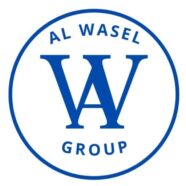The Kingdom is growing sustainably
The economic significance of the countries in the middle east needs not to be said. Countries such as Saudi Arabia have amassed vast amounts of wealth with their fortunes in oil. Others like the UAE have complemented their oil wealth more with more success, with the city of Dubai being a global hub for business.
Bahrain has not been left behind either, with its GDP growing from a modest $6.2 Billion in 1999 to a substantial $38.4 Billion in 2019. Even this massive growth pales in comparison, however, when compared to the likes of the UAE.
The GDP of the UAE grew from a strong $84 Billion to over $421 billion during the same period, a substantially larger growth than Bahrain, with its massive economy.
And it is easy to think that UAE represents a better investment opportunity, with the country’s consistent periods of high growth. And for many industries, this is certainly true.
However, there are also risks associated with this kind of high paced economic growth. Risks that Bahrain, with its more modest and controlled pace of economic growth, does not carry. But what exactly are these risks that come with an exceedingly high pace of growth?
The risks of fast economic growth
There are, without doubt, significant benefits to a growing economy. The country and its people will benefit from a growing economy and will find their living conditions to have improved.
However, economic growth, when it’s unusually fast, as is the case for some of the countries in the middle east, comes with its own set of risks. Risks that a country that has had a more stable growth like Bahrain does not need to worry about.
For starters, high paced growth will likely result in disproportionately high costs for commodities. This can quickly raise living expenses in a country that experiences such growth. Bahrain, with its significantly lower costs of living compared to the other major countries and cities in the region, does not have this issue.
Fast growth can also put significant strain on the environment, as infrastructure for power and the like are built to meet increasing demands. CO2 emissions per capita are, as a result, lower in Bahrain than the likes of UAE, Kuwait and Qatar, which also carries the highest emissions rate in the world. With the world more at risk from emissions than ever, Bahrain with its slower growth and small size has the strength to take significant action when needed.
Bahrain’s current CO2 emissions per capita are the lowest it has been since 1972, showing the improvements the country has made in its overall environmental sustainability.
The country’s plans to continue its economic growth through diversification of its sources of strength is also an encouraging factor.
Bahrain has a plan for its continued economic growth, and it is not trying to grow at an unsustainable pace either. The country’s actions to encourage industries besides oil such as technology and tourism are evidence of this. All of these make for a safer, less volatile business environment for investors and business owners to enter.
Looking to invest in Bahrain?
Have a business project in Bahrain? Or are you simply looking to set up your business in Bahrain as well?
There are many ways to proceed, and joining hands with a local corporate partner who can make business happen is likely the best one. Connect with us today, and learn more about how we can help your business in Bahrain.

